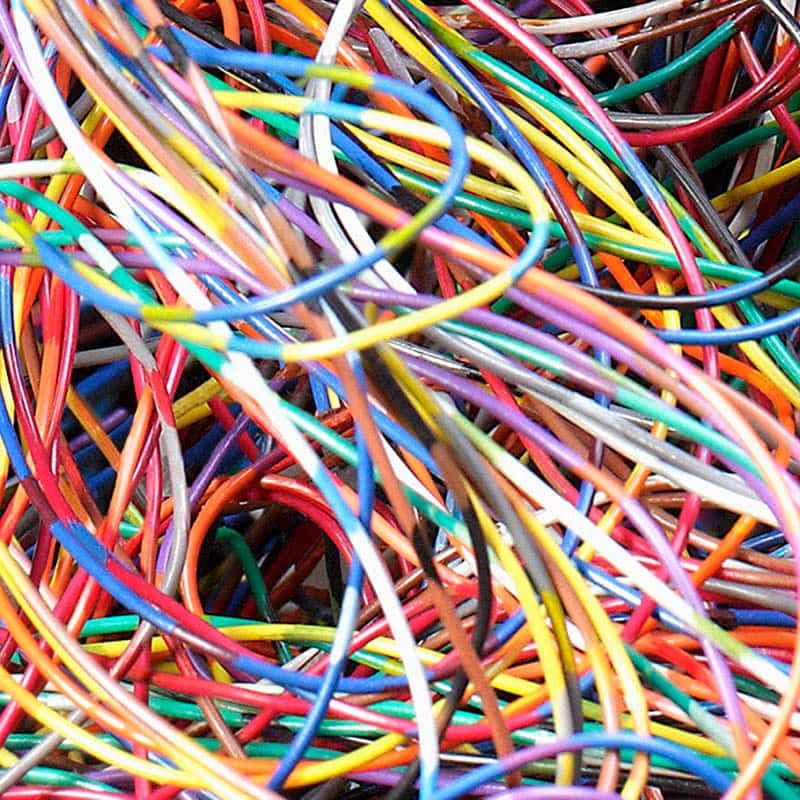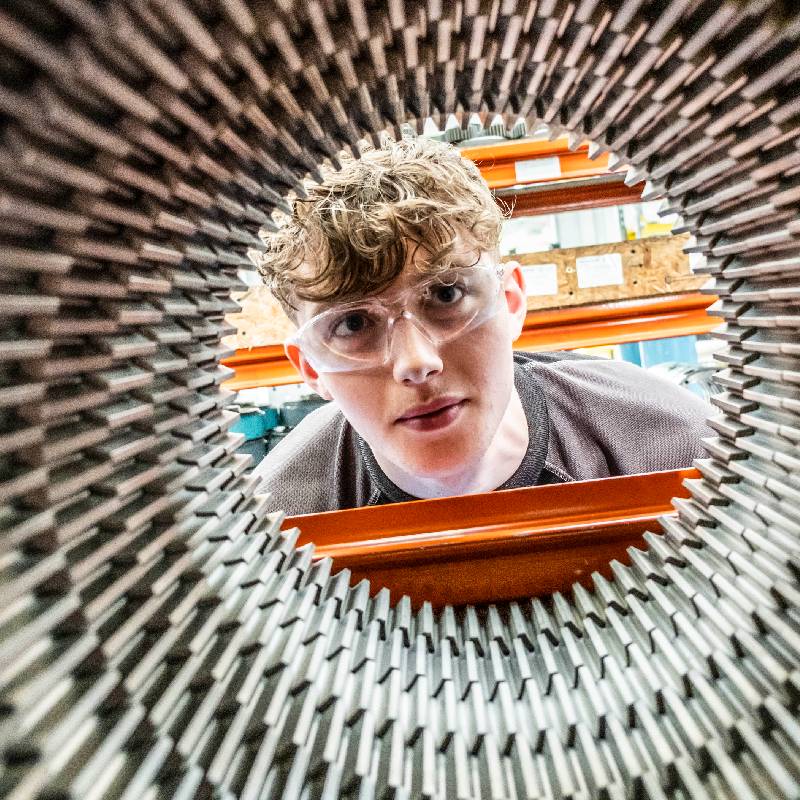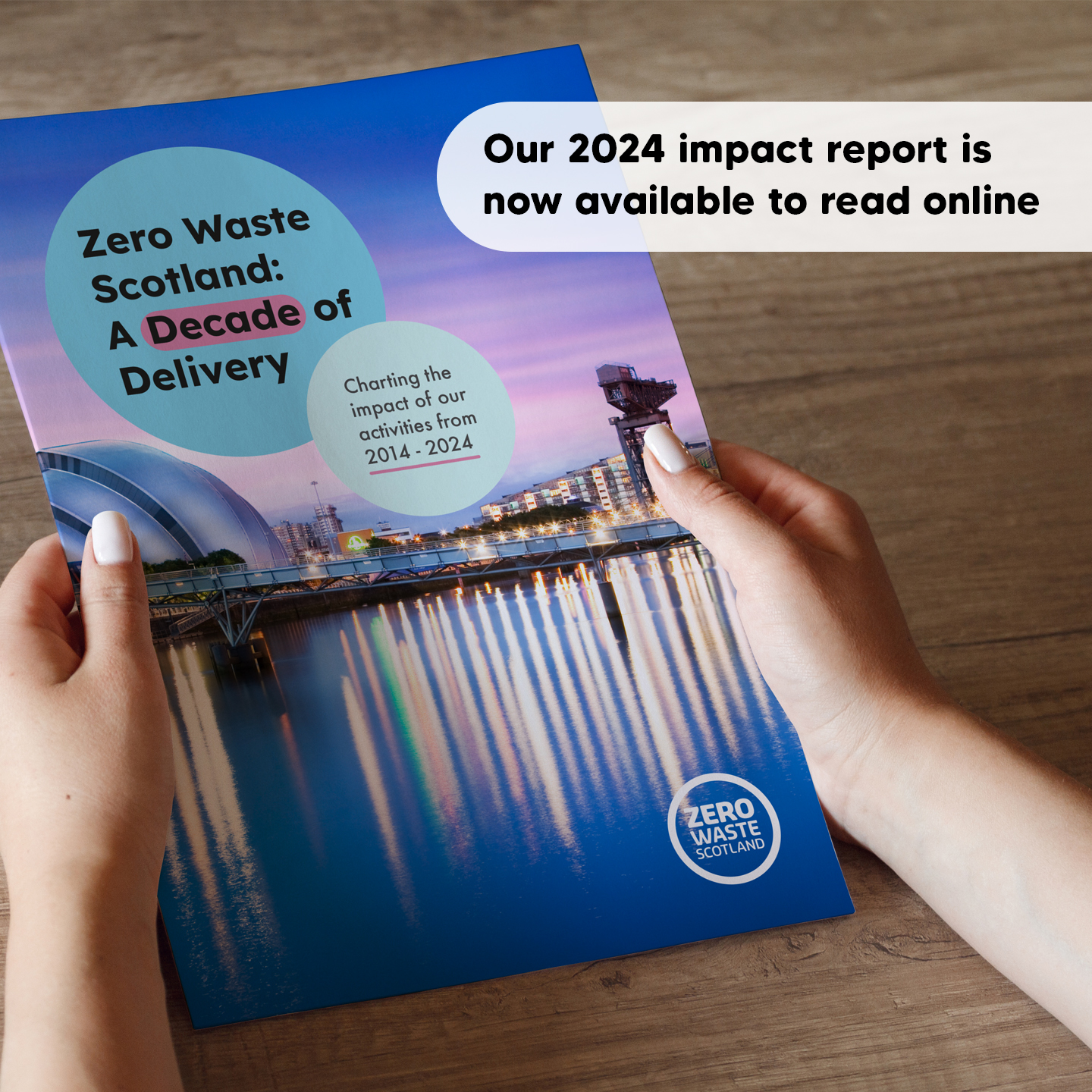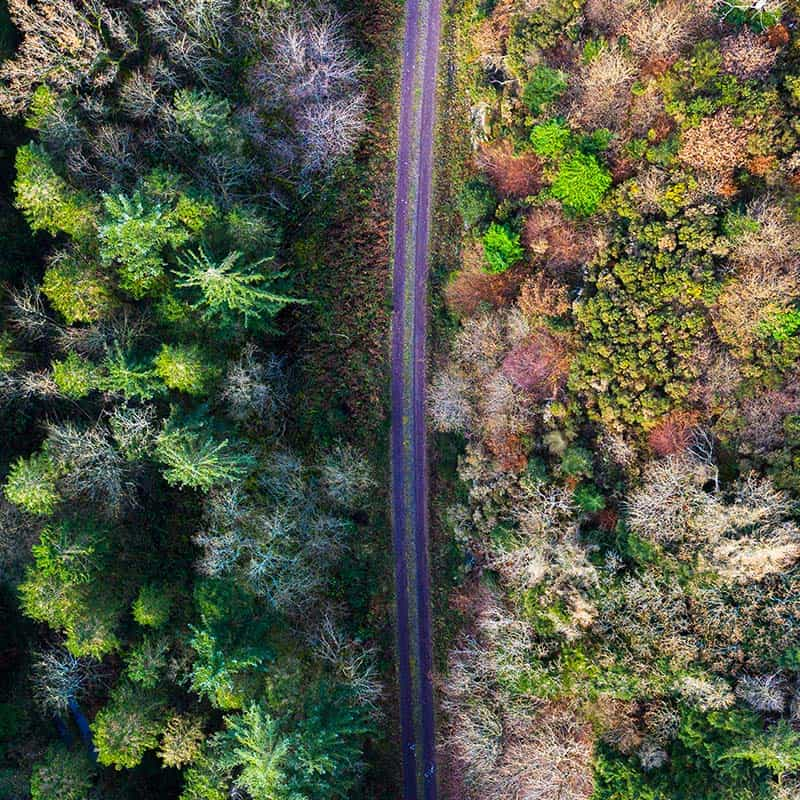
Circular economy bitesize resources
A series of educational resources that focus on the topics of energy, waste, recycling & litter within the context of the circular economy.
Forever foods
Find out more about how long foods last for. How long do you think you can keep honey for? How long does salt last? Once you have looked at the different foods answer the questions. This resource involves literacy and numeracy skills and considers health and well-being.
Suitable for: P6 - S2
Approximate time: 15 minutes
Curriculum links: HWB 1-35a, HWB 2-35a, LIT 3-14a / LIT 4-14
Meta-skills: Critical Thinking: Logical Thinking. Focussing: Sorting, Filtering.
Why do apples turn brown?
This is a science experiment that you can do in your kitchen, all you need is: ·
- A sliced apple;
- A sealed container;
- Something to wrap a slice in e.g. beeswax wrap or clingfilm (only if you can’t find a reusable or recyclable option);
- Kitchen roll, a tissue;
- Optional lemon juice (this will test the effect of acid);
- Small space in the fridge.
Place sliced apple in different environments as described in the table, record and observe what happens with time. What is the best way to store sliced apple to keep it fresh for longer? This resource involves maths and science skills
Suitable for: P6 - S2
Approximate time: 20 minutes to set up and 10 minutes the next day
Curriculum links: SCN 3-19a, MTH 2-21a, 3-21a
Meta-skills: Curiosity: Observation, Problem Recognition. Focussing: Attention, Filtering. Critical Thinking: Logical Thinking, Judgement. Creativity: Idea Generation.
Microbes Heroes or Villains?
Use this resource to learn more about the different types of microbes that exist and how they are used. This resource involves literacy skills and considers topical science.
Suitable for: P7/S1/S2
Approximate time: 30 minutes
Curriculum links: LIT 3-05a, LIT 4-05a, LIT 3-06a, LIT 4-06a
Meta-skills: Focussing: attention, Curiosity: observation.
Creative piece about food waste
Use the ‘Food we waste in Scotland’ fact sheet and any information about food waste to create a rap, poster, video or newspaper article about the issue. Think of ideas about how to reduce food waste. You could search the internet to find out more information. This resource involves literacy, expressive arts, technology and topical science skills.
Suitable for: P6 - P7
Approximate time: 40 minutes
Curriculum links: EXA 1-02a, SOC 1-08a, TCH 1-03a / TCH 2-03a
Meta-skills: Curiosity: observation, questioning, problem recognition, information sourcing, Creativity: imagination and idea generation, visualising, maker mentality
Reimagining food
Use PowerPoint to discover cultures and dishes from around the world. Consider the food items on the final page - can you create your own dishes to use the items up? this resource involves literacy skills and social studies.
Suitable for: P6-P7
Approximate time: 30 minutes
Curriculum links: HWB 2-34a, SOC 1-08a, SOC 2-19a:
Meta-skills:
Primary litter quiz
Try our litter quiz to see what you know about the issue of litter. This resource involves literacy skills and topical science.
Suitable for: P6 - P7
Approximate time: 30 minutes
Curriculum links: SCN 2-20b, LIT 2-14a
Meta-skills: Focussing: attention and filtering, Critical thinking: logical thinking
Food preservation
This resource explores the history of food preservation. First, read the PDF to find out about the different types of food preservation and plot them on the timeline by their date of discovery. It involves literacy, science and numeracy skills.
Suitable for: S1-S2
Approximate time: 40 minutes
Curriculum links: HWB 1-35a / HWB 2-35a, SCN 3-12b
Meta-skills: Focussing: attention, sorting, Critical thinking: logical thinking
Food Cost
Use the information provided in the table to calculate the price per portion of each food group. This task involves numeracy skills.
Suitable for: S1-S2
Approximate time: 40 minutes
Curriculum links: MNU 3-01a, MNU 4-07a, MNU 4-20, MNU 3-08a
Meta-skills: Social intelligence: feeling, Innovation: curiosity
Bin it or eat it
Use the images to decide what the best thing to do with the food would be. Should you bin it or eat it? Could you make older fruits into a smoothie rather than binning them? You will become more aware of the benefits of preventing food from going to waste rather than binning avoidable food waste. It involves
topical science and skills to express your opinion using the images.
Suitable for: S1-S2
Approximate time: 30 minutes
Curriculum links: LSCN 4-20b, SCN 3-20a
Meta-skills: Critical thinking: judgement, Sensemaking: opportunity recognition, Creativity: idea generation
11 things you can do about flytipping
Read the article about 11 things that can be done to reduce flytipping. Then rank the actions from ‘will make the most difference’ to ‘the least difference’. Create a poster, newspaper article or poem about the most important action. It involves literacy and numeracy skills and health and well-being.
Suitable for: S1-S2
Approximate time: 40 minutes
Curriculum links: HWB 2-13a, HWB 3-13a, HWB 4-13a
Meta-skills: Critical thinking: judgement, Sensemaking: opportunity recognition, Communicating: storytelling
Snakes and Ladders
Roll the dice and play a game of snakes and ladders. Use the statements to consider the issue of food waste and discuss your views on them. You will become more aware of the benefits of preventing food from going to waste and recycling rather than binning unavoidable food waste. Snakes – these represent the more negative facts and actions associated with wasted food in Scotland. Ladders – these represent the more positive facts and actions associated with wasted food in Scotland. It involves topical science and skills to express your opinion using the statements.
Suitable for: S1-S2
Approximate time: 40 minutes
Curriculum links: LIT 2-26a, SOC 3-08a
Meta-skills: Focussing, sorting, sense-making, logical thinking, judgement
Hierarchy of waste
Use the statements to consider the hierarchy of food waste and use this to consider what action you could take to reduce your food waste. It involves literacy skills and environmental science.
Suitable for: S1-S2
Approximate time: 20 minutes
Curriculum links: LIT 2-29a, SCN 2-20b, SOC 3-08a
Meta-skills:Innovation: curiosity, critical thinking. Self-management: focusing
How long does litter take to break down
This resource looks at the issue of litter and how long litter takes to decompose. It involves literacy and numeracy skills and considers environmental science.
Suitable for: S1-S2
Approximate time:
Curriculum links: SOC 3-08a
Meta-skills: Social intelligence: feeling, Innovation: curiosity
Portion poem
This resource looks at how big your portions should be to have the right amount of food and avoid wasting food. It involves literacy skills and considers health and wellbeing.
Suitable for: P1-3
Approximate time:
Curriculum links: LIT 1-04a, TCH 0-02a
Meta-skills: self-management – integrity and adapting
Food waste super saver
This is a literacy task to learn more about Scotland’s issue of food waste and how to reduce it. Look at the slides and answer the questions.
Suitable for: S1-S2
Approximate time: 20 minutes
Curriculum links: LIT 2-29a, SCN 2-20b, SOC 3-08a
Meta-skills: innovation: curiosity, critical thinking. self-management: focusing
Litter quiz
This resource looks at the issue of litter through a quiz, you can use the fact sheet, PowerPoint and the internet to find the answers to the questions. It involves technology and literacy skills and considers environmental science.
Suitable for: S1-S2
Approximate time:
Curriculum links: SOC 3-08a, LIT 4-13a, LIT 3-06a / LIT 4-06a
Meta-skills: Self-management: Focussing, Innovation: Curiosity, Critical thinking and Sensemaking
Indirect costs of littering
Match the indirect litter cost with the keyword in blue. Order the costs related to indirect littering from highest to lowest.
Create a rap, newspaper article or poem about these indirect costs of littering. It involves literacy and numeracy skills and explores science, health and well-being topics.
Suitable for: S1-S2
Approximate time: 40 minutes
Curriculum links: HWB 2-13a, HWB 3-13a, HWB 4-13a, SOC 2-08a, SOC 3-08a
Meta-skills:Innovation: Curiosity, Creativity, Critical thinking. Social intelligence: Communicating
Build a roll
This resource explores how food is made and uses literacy skills to use keywords accurately. It involves literacy skills and health and wellbeing.
Suitable for: P1-P3
Approximate time: 20 minutes
Curriculum links: HWB 0-30a, SOC 0-07, LIT 1-20a / LIT 2-20a
Meta-skills: Self-management: Focussing
Taste test
This resource explores food tastes. You can use the table to do taste test foods that are available in your own house already. E.g. Could you blend old fruit into a smoothie, how does it taste? It involves literacy skills and health and well-being.
Suitable for: P1-P3
Approximate time: 20 minutes
Curriculum links: HWB 0-30a
Meta-skills: Innovation: Curiosity, Sensemaking. Self-management: Adapting.
Stop littering creative piece
This resource requires young people to think about the issue of littering. It is a literacy task that uses digital literacy to prepare a creative piece. It explores topical science and people, place and environment. Note- reference previous litter resources to support this work.
Suitable for: Aimed at S1/S2 but could suit P4-S2
Approximate time: 45 minutes
Curriculum links: SOC 2-08a / SOC 3-08a / SOC 4-08a, LIT 2-26a, TCH 2-01a / TCH 3-01a / TCH 4-01a
Meta-skills: Social Intelligence: Communicating, Innovation: Curiosity, Creativity, Critical thinking, Sensemaking.
Plate promise word search
This resource considers keywords for food and food storage. It involves a word search to find the keywords and a literacy task to use the words within a sentence. It explores health and well-being and involves literacy skills.
Suitable for: P4-P6
Approximate time: 20 minutes
Curriculum links: HWB 1-35a, HWB 2-35a, LIT 1-06a
Meta-skills: Self Management: Focusing
Food waste facts quiz
This resource considers the issue of food waste. It involves a short quiz followed by revealing the correct answers on completion. It considers topical science and environmental issues. It involves literacy, IT and numeracy skills.
Suitable for: S1-S2
Approximate time: 10 minutes
Curriculum links: SOC 3-08a, SCN 2-20b
Meta-skills: Self-Management: Focussing. Innovation: Curiosity, Critical thinking
Litter Facts: True or False Litter Quiz
This resource explores the issue of litter. First, read the factsheets and then complete the short true/false quiz. It involves literacy skills and numeracy skills.
Suitable for: S1-S2
Approximate time: 20 minutes
Curriculum links: SOC 3-08a, SCN 2-20b
Meta-skills: Self-Management: Focussing, Innovation: Curiosity, Critical thinking
Storage Snap Matching Exercise
This resource considers how to store food and think about reducing food waste. It involves matching the pictures to the right storage area and teaches us about how we can prevent food waste and the science behind food storage. For top tips check out the Storage Snap song first!
Suitable for: P1-P3
Approximate time: 20 minutes
Curriculum links: MNU 0-20b, HWB 0-30a, HWB 1-35a
Meta-skills: Social Intelligence: Communicating Innovation: Critical thinking, Sensemaking
Crunching numbers
This resource uses numbers to explore the issue of food waste. It involves maths and literacy skills.
Suitable for: S1-S2
Approximate time: 30 minutes
Curriculum links: MTH 2-21a, MTH 3-21a, MTH 4-21a
Meta-skills: Self-Management: Focussing, Innovation: Critical thinking
The food waste diary
This resource encourages you to think about your own food waste and what you can do to reduce this. It involves literacy, science, social science and maths.
Suitable for: ALL
Approximate time: 15 minutes a day for a week
Curriculum links: LIT 2-29a, SCN 2-20b, SOC 3-08a
Meta-skills: Social Intelligence: Communicating Self-Management: Integrity Innovation: Curiosity, Creativity, Critical thinking, Sensemaking
Scotland's Waste - Matching
This matching activity encourages you to think about waste and Scotland’s litter problem. It is a social science and science task.
Suitable for: S1-S2
Approximate time: 10 minutes
Curriculum links: SOC 3-08a, SCN 2-20b
Meta-skills: Focussing: Sorting, Attention.
How big is Scotland's litter problem
This quiz encourages you to think about waste and Scotland’s litter problem. It includes science, literacy and social science.
Suitable for: S1-S2
Approximate time:15 minutes
Curriculum links: SOC 3-08a, SCN 2-20b
Meta-skills: Focussing: Sorting, Attention.
How to reduce energy at home
This is a literacy task to learn some tips to reduce your energy usage at home. Analyse the text below and identify the small changes that you can make to reduce your carbon footprint and save money whilst working from home.
Suitable for: S1-S2
Approximate time: 20 minutes
Curriculum links: LIT 2-29a, SCN 2-20b, SOC 3-08a
Meta-skills: Social Intelligence: Communicating, Leading Self-Management: Focussing, Adapting Innovation: Critical thinking, Sensemaking
The lifecycle of a strawberry
This resource explores the journey of food from how and where it is grown to how it arrives on your plate and how to limit food waste. It is a literacy task that enables young children to use images to tell a story.
Suitable for: P1-P3
Approximate time: 15 minutes
Curriculum links: HWB 0-35a and HWB 1-35a
Meta-skills: Focussing: Attention, Sorting, Filtering. Sense Making: Opportunity Recognition. Critical Thinking: Logical Thinking. Creativity: Idea Generation. Innovation: Critical thinking, Sensemaking.







